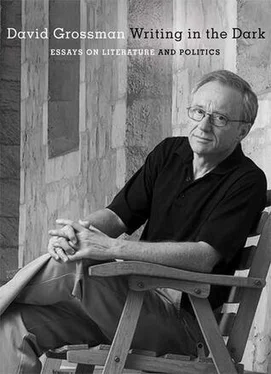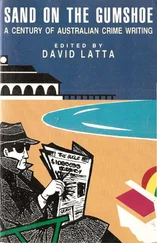I dream of a time when the State of Israel finally has permanent, stable, defensible borders, recognized by the UN and by the entire world, including the Arab states, the United States, and Europe. Borders that will be negotiated with former enemies out of mutual agreement, rather than drawn unilaterally and coercively — as Israel is doing today with the wall it is building around itself. The meaning of the new borders will be security. It will be identity. It will be home.
The meaning of such borders will also be that the Jewish people can finally resolve the critical dilemma of its entire existence: the question of whether it is a “nation of place” or a “nation of time.” Are the Jewish people a “nation of eternity,” a “nation of the world,” unconnected and uncommitted to any one physical place, able to exist within the universal sphere of religion and culture and spirituality alone? Or is it now ripe to begin a new stage, a stage that will be the true and complete realization of the process begun in 1948, when the State of Israel was established?
In other words, an agreement on the borders of Israel, and a normalization of relations with all its neighbors, will gradually be able to answer the extremely complex and loaded question of whether the Jews are truly willing and able to live in a state with permanent, unambiguous borders, to live with a clear national definition. Or are they instead doomed — because of reasons I will not go into, and which are possibly more emotional than political — to continue their search for a “borderless” existence, in its deepest sense, for a state of constant motion, of intermittent exile and return, assimilation in other identities, and subsequent returns to Jewish identity? Such a condition persistently evades definition, impenetrable to all forces acting around it, forces that sometimes enrich and fertilize it, and sometimes, as has often occurred, try to annihilate it.
One can also hope that a peace agreement resulting in safe and stable borders will heal a deep deficiency in Israelis’ sense of acceptance into the political, international “normalcy” that has eluded them for hundreds of years, even though they have had their own state for much of that time. Because this, perhaps, is the greatest tragedy of the Jewish people: that throughout its history it has always been viewed by other peoples and religions, primarily Christianity and Islam, as a symbol or a metaphor for something else — a parable, a religious moral of retribution for a primordial sin. It has not been seen as “the thing itself,” as a nation among nations, as a person among persons.
For almost two thousand years, the Jew was distanced and exiled from the practical political reality of what is known as “the family of nations.” His humanity was denied through a variety of sophisticated means of dehumanization and, conversely, idealization — and these are two sides of the same coin. He was laden with fears and superstitions, treated as an anomalous, mysterious, metaphysical entity with an internal order that is different from others, and with hidden powers that are above nature — and sometimes beneath it, as the Nazis proclaimed when they defined the Jew as Untermensch .
Judas Iscariot, God killer, Antichrist, the Wandering Jew, the Eternal Jew, well-poisoners, spreaders of plagues, the Elders of Zion seeking world domination, and many other satanic and grotesque characters, Shylocks and Fagins, have trickled into folklore, religion, literature, and even science. Perhaps this is why the Jews found comfort in self-idealization, in viewing themselves as the chosen people, which is also, in and of itself, a problematic and obstructive perception, and one all the more isolating.
I am alluding here to a subtle and extremely delicate sense, a sense of profound foreignness in the world. An existential foreignness of the Jewish people among others. An existential loneliness that perhaps can only be understood by Jews. An aura of riddle and mystery that has encompassed the Jewish nation — and Jewish people — over the generations. A riddle that has spurred other nations to solve it in various ways, to ascribe racial and racist definitions to the Jews, to repeatedly delineate them with fences and ghettos, to restrict their living space, their professions, their rights, all culminating in the most definitive and terrible attempt to “solve” this Jewish riddle: the “final solution.”
If we look back a mere decade, to the days of the early Oslo process, we can recall what an important change occurred at that time in the worldview, and in the self-perception, of Israelis. In those days many Israelis began to taste the intoxicating flavor of a new way of belonging to the modern world, an acceptance of sorts into a progressive, civic, liberal, and essentially secular universalism. It seemed as though some sort of nation-among-nations normalcy was emerging. For a short while, very short, there was a chance to create a relationship that would be more mutual, more equal, less loaded, between Israel and “the rest of the world.” I will even dare to employ a somewhat “literary” or metaphorical description: there was a sense of acceptance into reality.
And then, over the past four years — as a result of the severe threat created by the intifada and the terrorist attacks, the overwhelming hostility around the world to Israel’s acts and at times to its very existence, the swell of anti-Semitism, and the increasing demonization of Israel — these same Israelis found themselves once again sucked into the tragic wound of Judaism, into the scars of its most painful and paralyzing memories. Israeliness itself, which was always directed at the future, comprising constant agitation and promise, seemed to shrink and seep back into the channels of trauma and pain that pervade Jewish history and memory. The result is that among “new” Israelis, the anxieties of the Jewish fate, the experience of persecution and victimhood, the sense of profound loneliness and existential alienation, are once again surfacing powerfully.
(In this context, it is interesting to note that Israel is still known, even among its citizens, as “the Promised Land.” Not “the land that was promised” or “the land of promise,” but, ostensibly, the land that is still in a permanent state of being “promised.” Even after the “return of Zion” and the establishment of a sovereign state, Israel is still perceived by its residents as not entirely realized, and certainly not having fulfilled all its potential. In a state of “eternal promise” there is of course the hope for momentum and the potential for great liberty — liberty of thought and creation, and a flexibility of viewpoints on things that have become set in their definitions. But this state is also afflicted by a curse of “eternal unfulfillment” that engenders a latent sense of inability to ever achieve full realization and full contact with all aspects of reality, and therefore an incapacity to normalize the fundamental questions of identity, of place, of clear borders, and of neighborly relations.)
Could real peace begin the Israeli-Jewish process of healing from those distresses and anomalies? Moreover, will “the world”—namely, the Christian and Muslim worlds, as well as regions dominated by other faiths and religions, and states where anti-Semitism prevails, whether openly or as an undercurrent — be able to heal itself of its distorted approach to Israel and to Judaism? Will it ever be able to let go of its racism toward Jews? With your permission, I will leave these momentous questions open. I do not have the answers.
There is one more unanswered question: What will really happen to Israeli society, now polarized and conflict-ridden, if the external threat is removed — the threat that currently protects it from internal strife and “helps” it avoid confronting the contentious issues? To an outside observer this may seem an unfounded and even fantastical question, but it has been hovering in Israeli public space for decades, so much so that one can sometimes hear statements along the lines of “The war with the Arabs saves us from civil war.”
Читать дальше












